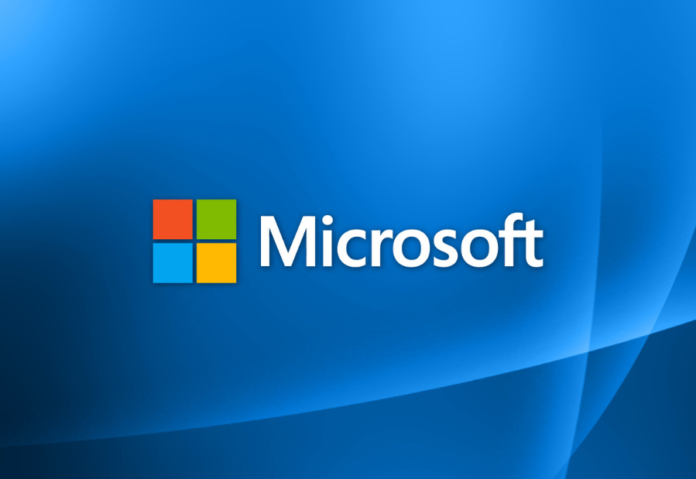Microsoft has invested around Rs 32.6 crore in the Hyderabad-based company, according to the latter’s filings with the Ministry of Corporate Affairs
Tech giant Microsoft has invested an undisclosed amount in HR tech startup Darwinbox as part of its Series D funding. Though the companies declined to comment on the amount, Microsoft has invested around Rs 32.6 crore (or nearly $4 million) in the Hyderabad-based company, according to the latter’s filings with the Ministry of Corporate Affairs.
Recently, the company had raised around $4.9 million from the State Bank of India as part of its extended Series D round.
In January 2022, Darwinbox raised $72 million in Series D round led by Technology Crossover Ventures with participation from existing investors including Salesforce Ventures, Sequoia Capital India, Lightspeed India, Endiya Partners, JGDEV, 3One4Capital, and SCB 10x to enter the unicorn club.
Besides the equity investment, the two companies have also signed up for a strategic partnership, including product integrations, co-innovation, and go-to-market (GTM). This is Microsoft’s first partnership with any player in the human capital management (HCM) sector. With this collaboration, Darwinbox aims to touch the $100-million mark in terms of annual recurring revenue (ARR) by 2025.
“We have our one-year, two-year, and three-year plans. If we execute this partnership well, we will achieve those numbers in half the time frame,” said Jayant Paleti, Co-founder of Darwinbox.
“One number that we continue to gun for–it’s an important milestone for any SaaS (software-as-a-service) player–is the $100 million ARR. With this partnership, we believe we can get there by 2025,” he added.
Though Jayant declined to share Darwinbox’s current ARR, according to the company’s filings with the Ministry of Corporate Affairs, Darwinbox posted revenue of around $6.5 million in financial year 2020-21. It is yet to report its financial statements for FY 2021-22.
“We are a platform company. If you see our product portfolio, barring a few, these are all platforms, and only when partners like Darwinbox build on top of the platform, that value increases. That’s always been our ethos. That’s essentially what our inbox is bringing to the table,” said Sangeeta Bavi, Executive Director, Digital Natives, Microsoft India.
She declined to offer details on Microsoft’s investment in Darwinbox as per the company policies. The American tech corporation has invested close to $4 million in Darwinbox.
Choosing Microsoft as a strategic partner was a natural choice for the Hyderabad-based company, as over 90% of its customers are part of the Microsoft ecosystem. Darwinbox primarily targets enterprise customers, which are the tech major’s bread and butter.
Under the partnership, Darwinbox’s customers would see deep integrations between the startup’s product features and Microsoft’s platforms. For instance, employees or managers perform HR-related tasks on the latter’s communication platform Microsoft Teams without leaving the app.
Another would be combining the startup’s analytics engine with Microsoft’s interactive data visualisation software Power Bi to offer better insights to their customers. Building connectors between Darwinbox product features and LinkedIn’s capabilities with respect to recruitment, skilling and learning aspects is on the cards.
Darwinbox, which has a significant chunk of its customers in India and Southeast Asia, entered the Middle East in mid-2021 and launched in the US last quarter.
“In all these geographies, not only all the customers that we have, but also the ones we want to get to, Microsoft is already present. So, the thought is how can we work with Microsoft’s go-to-market engine and amplify our own sales motion,” explained Jayant.
However, in the next 12-18 months, Darwinbox is looking to go deeper into the markets where it is already present, before leveraging Microsoft’s presence in some of the newer regions it has stepped into or is looking to enter.
The two partners are working on a joint GTM plan where Microsoft enables its sellers to understand how to position and pitch Darwinbox. “The Microsoft sales force doesn’t sell Darwinbox, but it enables door-opening and deal-acceleration conversations,” said Sangeeta.
“In the last 5-6 years, we have tweaked our seller incentives because we have also been piloting a bunch of things. Now, the Microsoft sellers are incentivised to sell either Microsoft first party solutions or Microsoft Partner Solutions, which are built on top of the Microsoft tech fabric like Darwinbox,” adds Sangeeta.
Darwinbox has 750 customers and nearly two million employees as end-users in 100 countries. The company has field teams in all the countries it is present in as it needs to provide customised solutions to its customers based on their requirements and the deal cycles vary from five to eight months.
“We will have an internal team that will work with Microsoft closely to ensure that we have a joint plan in terms of the accounts that we will go together with and in a lot of places, Microsoft will be able to accelerate/influence the deals,” said Jayant.
The Hyderabad-based company will double the headcount of its field sales team in the next 12-15 months. Currently, its field sales team is 50-member strong.
Jayant said Darwinbox will follow its “normal” pricing protocol to create a new pricing framework, which will come into effect from April 1 this year.
The company was founded by Jayant, Rohit Chennameneni, and Chaitanya Peddi in 2015.
Microsoft entities in India have over 20,000 employees in sales and marketing, research, development, and customer services and support across 11 cities in the country, as per reported by YourStory.
Also read: Learn relevant tech skills and gain experience
Do Follow: CIO News LinkedIn Account | CIO News Facebook | CIO News Youtube | CIO News Twitter
About us:
CIO News, a proprietary of Mercadeo, produces award-winning content and resources for IT leaders across any industry through print articles and recorded video interviews on topics in the technology sector such as Digital Transformation, Artificial Intelligence (AI), Machine Learning (ML), Cloud, Robotics, Cyber-security, Data, Analytics, SOC, SASE, among other technology topics






